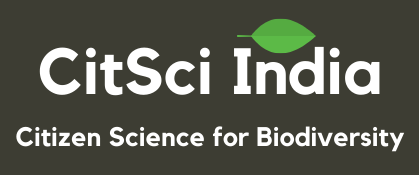Programme
Schedule
12th – 13th December 2024
The conference will be a 2-day virtual meeting where participants will interact over a Discord workspace, the link to which will be sent to registered participants closer to the conference dates.
The Schedule will be updated soon
1. All times are in Indian Standard Time (IST).
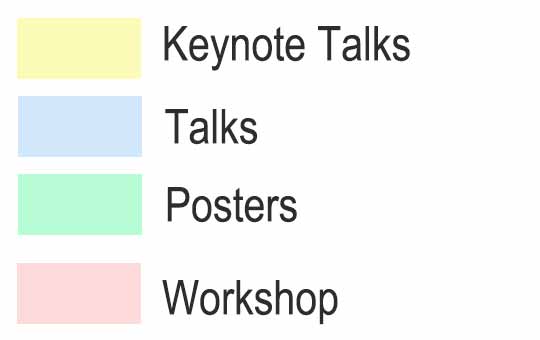
| Day 0: Wed, 11 Dec 2024 | |
| Time | Event |
| 16:00 – 17:00 |
Meet & greet + Acclimatizing to Discord Channel: #lounge-2024 |
| Day 1: Thu, 12 Dec 2024 | |
| Time | Event |
| 09:50- 10:00 |
Introduction to the Conference + Discord server Channel: #keynote-v-shubhalaxmi |
| 10:00- 10:50 |
Cracking the Code: Moth Identification and Citizen Science Channel: #keynote-v-shubhalaxmi |
| 10:50- 11:00 | Break |
| 11:00- 12:00 |
Poster SessionChannel: #12-dec-posterDeepanjali Singh – Data for Conservation: Citizen Science and Policy Influence in India Paul Pop – Using iNaturalist to leverage species identification of moths in – Bilaspur district, Himachal Pradesh Siva T – Biodiversity Gap filling in three districts – Perambalur, Dindigul, Tiruchirappalli – of Tamil Nadu Rameez Ahmad – Mapping Invasive Alien Plant Species in India: A Cross-Sectional Analysis of iNaturalist Data Peeyush Sekhsaria – Bird Window Collisions data from Wildlife Rescue organisations – a case for citizen science Riya Pakhre – Information hues of research institutions catapult citizen science: perspective on invasive species Rishov Biswas – Enabling experiential learning, conservation and eco-tourism through citizen science: A case study Ashwin A- Expanding Biodiversity Awareness in Asia: Insights from the 2024 Asia Nature Challenge Harsh Yadav – Citizen Science and Plant Blindness: A Review of Past CitSci India Conferences |
| 12:00- 13:00 | Lunch |
| 13:00- 14:00 |
eFloraofIndia: A unique way of collecting and presenting citizen science plant data with enhanced data quality and synergy between amateurs and experts Channel: #talk-j-m-garg |
| Day 2: Fri, 13 Dec 2024 | |
| Time | Event |
| 10:00- 10:50 |
Workshop: Revisiting Cit Sci India’s Data toolkit: emerging considerations and concerns In 2022, the Cit Sci India Data Working Group summarised the state-of-the-art in data practices in citizen science in India. In the two years since this data toolkit on best practices was published, data and data use practices have evolved to include novel types and end-uses for citizen science data. Furthermore, as the world becomes increasingly connected, contributor privacy and data attribution have emerged as key concerns. This workshop seeks to discuss some emerging considerations and concerns in citizen science data practices with practitioners. We invite participants to engage actively in the conversation. Resource persons – Thomas Vattakkaven (Strand Life Sciences), Priya Singh (Researchers for Wildlife Conservation), Vijay Barve (Nature Mates Nature Club), Balasubramanian Dhandapani (French Institute, Pondicherry), Geetha Ramaswami (Nature Conservation Foundation) Channel: #workshop |
| 10:50- 11:00 | Break |
| 11:00- 1200 |
Poster SessionChannel: #13-dec-posterSimbarashe Mudavanhu – Social Media to Map Biodiversity in Victoria Falls, Zimbabwe: An Emerging Citizen Science Approach Bhavya Kriti – Latitudinal patterns of flowering phenology of three tropical species from public media repositories Vishesh Diengdoh – Impact of land cover and climate change on habitat of Indian birds Divin V – Northwestern region of India holds more suitable area for the endemic White-naped Tit Navaz Shariff – Impact of Manja Injuries on Bengaluru’s Urban Birds: Kalpana Jayaraman – Butterfly Diversity at Stella Maris College, Chennai, India Hareesha AS – Tirupati Bird Atlas:Spatial effects of bird life across diverse habitats in and around Tirupati city Pawan Kumar – The Role of Citizen Science in the Conservation of Elephant Corridors through Community Engagement. Sanjeev Menon – MYNA – Mapping Your Neighbourhood Avifauna |
| 12:00 – 13:00 | Lunch |
| 13:00- 14:00 |
Harnessing AI and Citizen Science for Large-Scale Plant Biodiversity Characterization: Insights from the Pl@ntNet Platform Channel: #keynote-pierre-bonnet |
| 14:00- 14:10 |
Closing note by the organising committee Channel: #lounge-2024 |
Confirmed Keynote Speaker
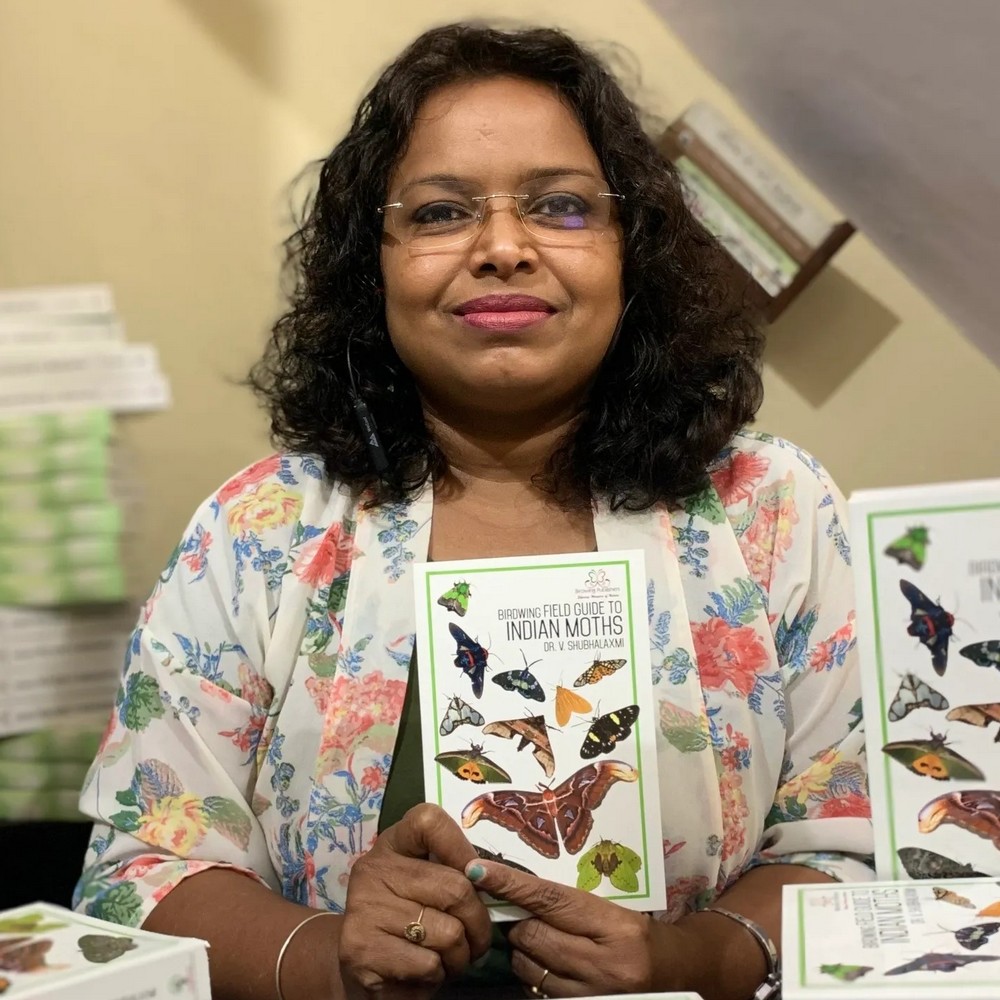
Dr. V. Shubhalaxmi
Award Winning Environmentalist | Educationist | Entrepreneur | Entomologist Author | Storyteller
Abstract
Cracking the Code: Moth Identification and Citizen Science
In this keynote, the speaker intricately explores the challenging and meticulous process of moth species identification, likening it to detective work due to the careful observation, analysis, and problem-solving required. She emphasizes the immense diversity of moths, with over 160,000 species globally, and highlights the difficulty in distinguishing visually similar species, which often requires a combination of external observations and advanced techniques.
The talk outlines the pioneering effort to create India’s first field guide on moths, documenting 773 species across 38 families, and details the ongoing revisions in its second edition to correct earlier misidentifications. A major focus is on the detective work involved in species identification, which often requires examining external traits like size, shape, coloration, and wing patterns, as well as internal characteristics such as genitalia structures. However, Dr. Shubhalaxmi underscores the limitations posed by relying on photographs alone for identification. While photographs can capture many external features, they cannot reveal critical internal traits that are essential for confirming species, particularly when dealing with cryptic species or those exhibiting sexual dimorphism.
She explains how this limitation is exacerbated by the scarcity of resources specific to moth identification. For instance, while comprehensive references like Fauna of British India or regional works like Moths of Borneo exist, they are either outdated or region-specific, leaving gaps in knowledge for Indian species. This makes identification especially challenging for researchers relying solely on visual or photographic data, as the subtleties of moth anatomy often require detailed laboratory techniques like genitalia dissection or molecular analysis to resolve.
Dr. Shubhalaxmi illustrates these challenges with real-world examples, such as the Darwin’s Hawk Moth, initially misclassified due to drastic differences between its larval and adult stages, and the Aptani Glory Moth, whose identification required international collaboration and expeditions to confirm it as a new species, Elcysma ziroensis. She explains how taxonomical terms like sp.cf. (species close to), sp.nr. (species near), and indet. (indeterminate) are used when definitive identification is unattainable without advanced tools.
The presentation also highlights the critical role of citizen scientists in aiding this detective work, despite the inherent challenges. Dr. Shubhalaxmi provides clear do’s and don’ts to guide citizen scientists, stressing the importance of detailed and accurate observations, proper use of identification tools, and adhering to ethical data collection practices. She acknowledges the difficulties they face with limited resources but underscores how their contributions, when done correctly, can significantly enhance biodiversity data quality.
In conclusion, Dr. Shubhalaxmi calls for the integration of modern tools like DNA barcoding, better resource allocation, and collaborative efforts among researchers and citizen scientists to overcome the challenges in moth identification. Her presentation emphasizes the detective-like precision required in taxonomy and highlights the need for robust resources and teamwork to advance biodiversity research and conservation.
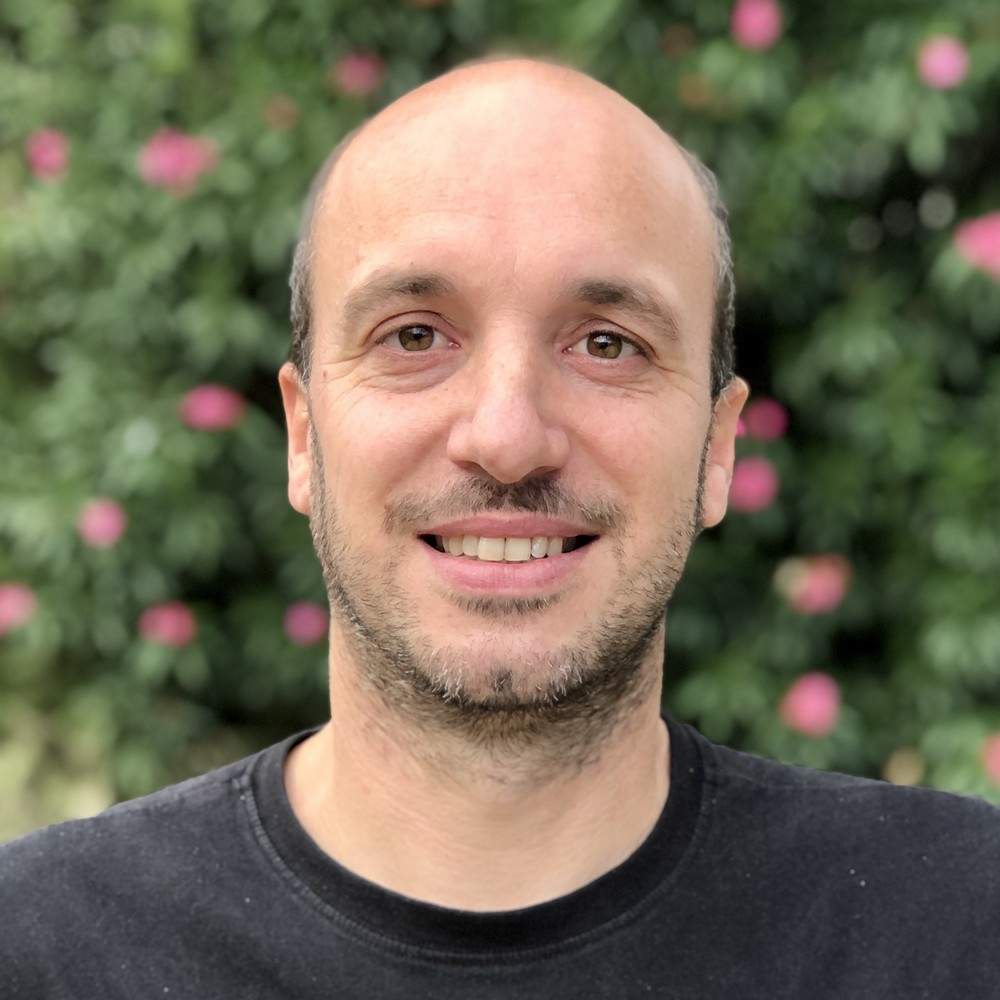
Dr Pierre Bonnet
Coordinator of the European GUARDEN project and the Pl@ntNet initiative
After obtaining his doctorate in 2008 from the University of Montpellier, following extensive fieldwork in South-East Asia, Pierre became the coordinator of the Pl@ntNet initiative in 2009. He has since played a key role in fostering collaboration between scientists and engineers from Pl@ntNet funding members (INRIA, INRAE, and IRD), as well as a large network of scientific institutions, promoting citizen science as a means to collect and analyze plant biodiversity data. His interests span both cultivated plants and those found in natural ecosystems, reflecting a commitment to understanding and preserving biodiversity across diverse contexts.
In addition to his leadership of Pl@ntNet, Pierre has been actively involved in coordinating large-scale international projects. Since 2022, he has led the European GUARDEN EU project, which focuses on safeguarding biodiversity and critical ecosystem services. He also contributes to other major initiatives, including the European MAMBO and Eco2ADAPT EU projects, the Pl@ntAgroEco project, and the global XPRIZE Rainforest challenge. Pierre’s work exemplifies the intersection of cutting-edge research, technology, and citizen engagement to address pressing environmental challenges.
Abstract
Harnessing AI and Citizen Science for Large-Scale Plant Biodiversity Characterization: Insights from the Pl@ntNet Platform
This talk looks at the transformative potential of combining artificial intelligence and citizen science for large-scale plant biodiversity monitoring, focusing on the development and impact of the Pl@ntNet platform. Central to this approach is the active participation of citizens from diverse backgrounds – of varying ages, skills and experience – whose collective contributions significantly improve the breadth and depth of biodiversity characterisation. Using concrete examples, we will demonstrate how this diversity of participation not only improves data quality, but also fosters a sense of shared ownership and engagement in the scientific process.
Equally important is the collaboration between scientific disciplines, in particular between ecologists and computer scientists, whose joint efforts have been instrumental in designing an efficient and user-friendly platform. Pl@ntNet demonstrates the importance of integrating the latest advances in artificial intelligence into citizen science projects, enabling rapid and accurate identification of plant species on a global scale.
Beyond its technical achievements, the platform illustrates a model of win-win engagement. Participants benefit from educational opportunities, acquiring new knowledge and skills related to biodiversity and conservation, while project managers and scientists gain access to high-quality open data, essential for advancing research and policy-making. This presentation highlights the need to create sustainable synergies between diverse citizen participants and interdisciplinary scientists to build future-ready platforms that support global biodiversity conservation and education efforts.
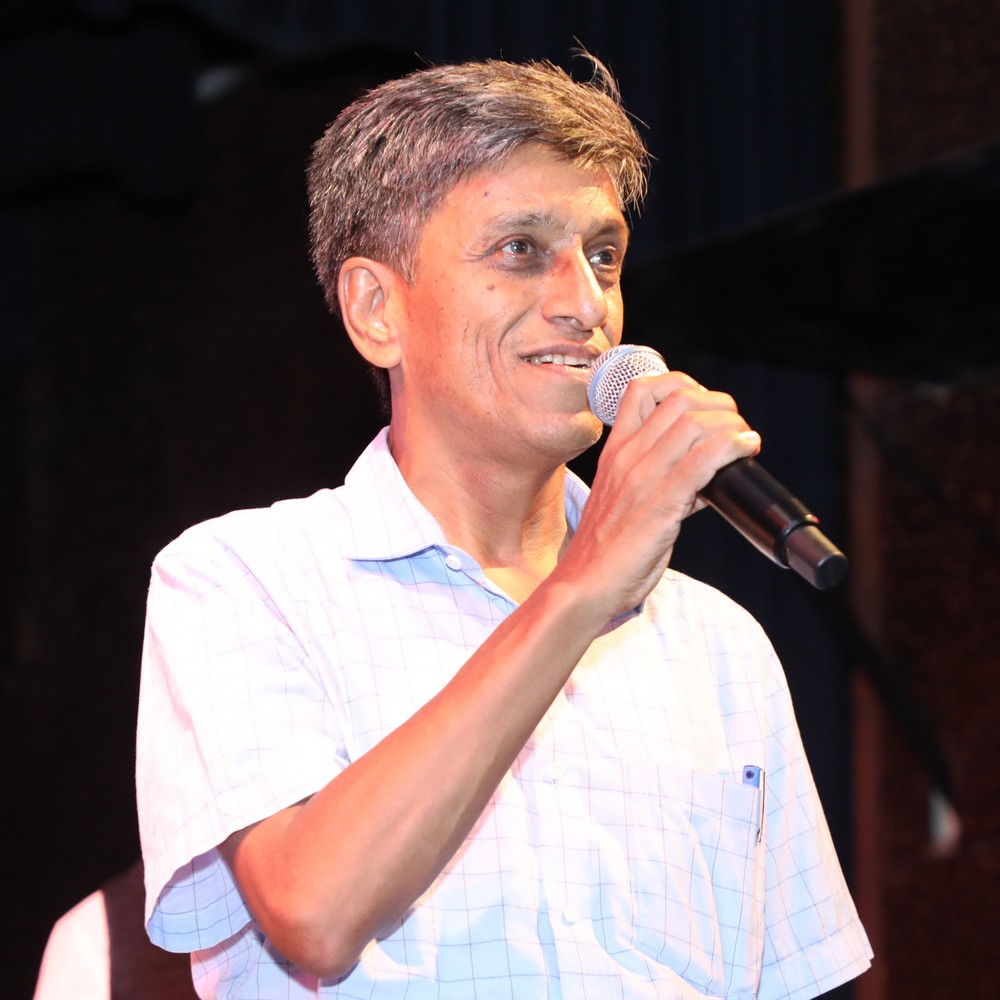
JM Garg
Creator of eFloraofindia google group and eFloraofIndia website | Citizen Scientist | Naturalist | Author | Photographer
Abstract
eFloraofIndia: A unique way of collecting and presenting Citizen science plant data with enhanced data quality and synergy between amateurs and experts
A unique way of collecting and presenting Citizen science plant data is discussed along with a brief introduction of eFloraofIndia. Its unique features are presented. How the data quality is enhanced is also presented here. Different aspects of synergy between amateurs and experts are detailed.
